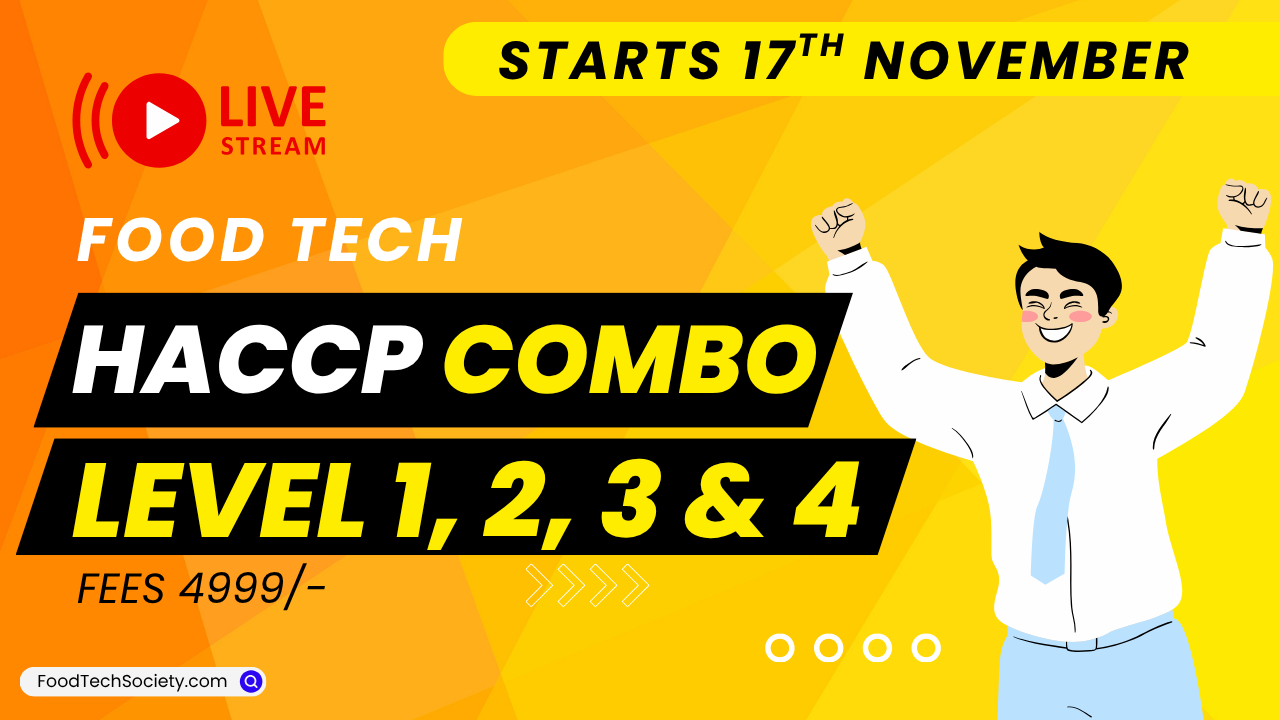HACCP Level 1, 2, 3 & 4 Combo Training

About Course
This HACCP training program is structured into four progressive levels designed to build comprehensive food safety competence. HACCP Level 1 (Awareness) introduces food handlers to the basics of food safety, hygiene, and the importance of HACCP. HACCP Level 2 (Foundation) provides supervisors and team leaders with deeper knowledge of food hazards, prerequisite programs, and the step-by-step HACCP principles. HACCP Level 3 (Implementation) equips HACCP team members and quality staff with practical skills to develop, implement, and manage HACCP plans effectively through detailed hazard analysis and case studies. Finally, HACCP Level 4 (Advanced/Internal Auditor) prepares senior professionals to lead HACCP systems, conduct internal audits, validate control measures, and drive continual improvement in compliance with global food safety standards. Together, these levels ensure food industry personnel are trained from basic awareness to advanced auditing expertise
Program Description
- HACCP Level-1
- HACCP Level-2
- HACCP Level-3
- HACCP Level-4
Student Ratings & Reviews
